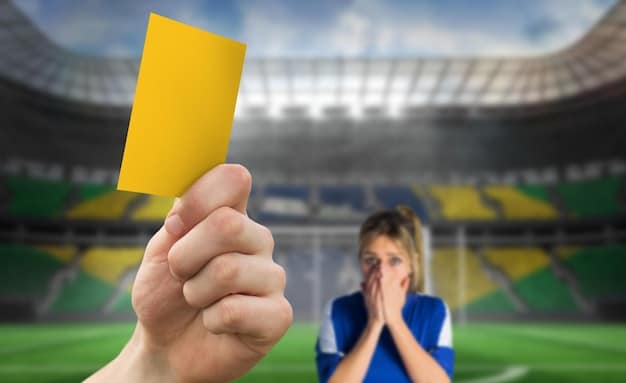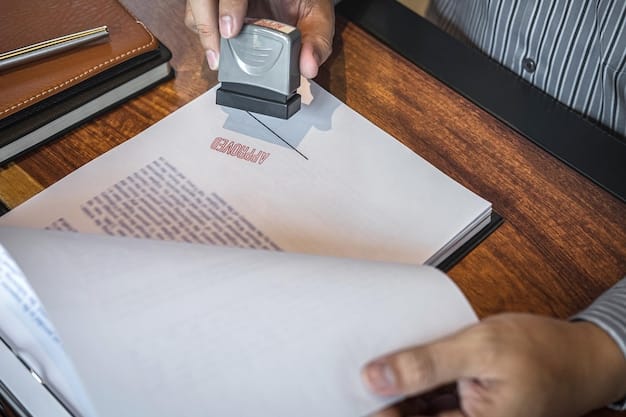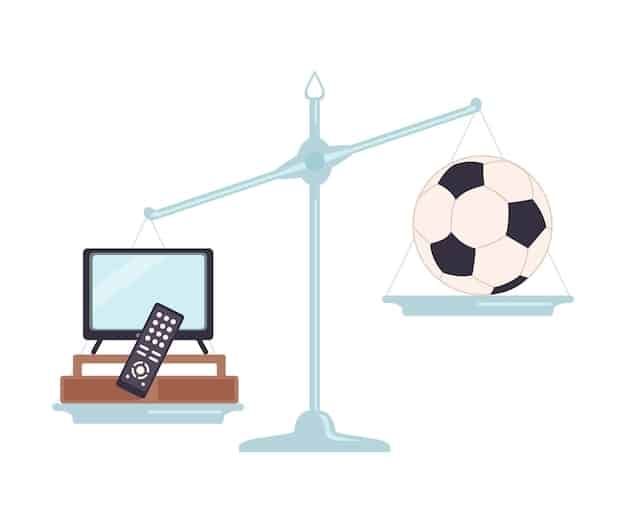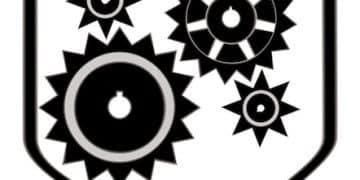FIFA Disciplinary Code: Sanctions & Appeals for US Players

Navigating FIFA’s Disciplinary Code: Understanding the Latest Sanctions and Appeals Process for US Players is crucial for maintaining compliance and ensuring fair play within international football, directly impacting careers and club stability.
Understanding FIFA’s Disciplinary Code: Understanding the Latest Sanctions and Appeals Process for US Players is more than just a matter of compliance; it’s about safeguarding careers and preserving the spirit of fair competition in global football. For American athletes and their representatives, navigating this complex legal landscape is paramount.
The Evolving Landscape of FIFA Disciplinary Actions
The world of international football is governed by a complex web of rules and regulations, with FIFA at its apex. Central to maintaining order and fair play within this ecosystem is the FIFA Disciplinary Code (FDC). This code outlines the types of offenses that can occur, the penalties associated with them, and the procedures for enforcement. For US players, understanding the intricacies of the FDC is not merely an academic exercise; it is a fundamental aspect of their professional careers, directly impacting their ability to participate and thrive on the global stage.
The FDC is a dynamic document, subject to periodic revisions to address new challenges and evolving circumstances in football. These updates are critical, often introducing new types of sanctions, modifying existing ones, or refining the procedural aspects of disciplinary proceedings. For instance, recent amendments have placed greater emphasis on issues such as discrimination, match manipulation, and integrity offenses, reflecting FIFA’s commitment to upholding ethical standards. Staying abreast of these changes is a continuous responsibility for players, clubs, and legal representatives alike. The consequences of ignorance can range from financial penalties to lengthy suspensions, potentially derailing a player’s career.
Key Principles of the FIFA Disciplinary Code
The FDC operates on several fundamental principles designed to ensure fairness, proportionality, and transparency. These principles guide disciplinary bodies in their decision-making processes and provide a framework for understanding the nature of sanctions. Adherence to these principles is vital for maintaining the credibility of FIFA’s disciplinary system.
- Due Process: Every individual subject to disciplinary proceedings has the right to a fair hearing, including the right to be informed of the charges, present a defense, and be represented by legal counsel.
- Proportionality: Sanctions imposed must be proportionate to the offense committed, taking into account factors such as the severity of the violation, the player’s disciplinary record, and any mitigating or aggravating circumstances.
- Legality: No sanction can be imposed unless there is a specific provision for it in the FDC or other applicable FIFA regulations, ensuring that all disciplinary actions are based on clear legal grounds.
Understanding these principles helps players and their legal teams anticipate how a case might unfold and what factors might influence a decision. Beyond the principles, the FDC also details the composition and powers of the various disciplinary bodies within FIFA, such as the Disciplinary Committee and the Appeal Committee, each with distinct roles and responsibilities in handling cases. Navigating these various committees and understanding their specific jurisdictions is a crucial step in any disciplinary process.
Common Disciplinary Offenses and Their Sanctions
FIFA’s Disciplinary Code covers a broad spectrum of offenses, ranging from minor infractions to serious violations that could undermine the integrity of the sport. For US players, being aware of these categories and the potential sanctions is vital for prevention and preparation. The nature of the offense often dictates the severity of the penalty, although mitigating and aggravating factors are always considered.
Misconduct on the field, such as violent conduct, serious foul play, or insulting behavior towards officials, frequently leads to immediate disciplinary action. These types of infractions are often captured by match officials and subsequently reviewed by disciplinary committees. Beyond on-field actions, offenses related to doping, manipulation of matches, or illicit betting represent some of the most severe breaches of the FDC, carrying significant penalties designed to deter such activities and protect the integrity of football. These integrity-related offenses are a major focus for FIFA, given their potential to corrupt the sport at its core.
Types of Sanctions Imposed by FIFA
The FDC outlines a range of sanctions that can be imposed, depending on the severity and nature of the offense. These sanctions are designed to be deterrents and to ensure that appropriate justice is served. Understanding the full range of potential penalties is crucial for anyone involved in a disciplinary proceeding.
- Warnings and Reprimands: Often issued for minor infractions, serving as a formal admonition without immediate severe consequences.
- Fines: Monetary penalties are common for various offenses, with amounts varying significantly based on the offense and the player’s income.
- Suspensions: Bans from participating in a certain number of matches or for a defined period, applicable at club or international level.
- Exclusion from Competitions: For more serious offenses, a player or team may be barred from specific tournaments or competitions.
Other sanctions can include stadium bans, points deductions for clubs, or even automatic relegation in extreme cases of institutional misconduct. The accumulation of certain types of offenses can also lead to harsher penalties, demonstrating FIFA’s commitment to recidivism. For US players, understanding these sanctions is not just about avoiding them, but also about preparing for their impact on their personal and professional lives if they are imposed. This detailed understanding allows for better risk assessment and strategic planning.

The Disciplinary Process: From Complaint to Decision
The disciplinary process within FIFA is a structured, multi-stage procedure designed to ensure fairness and thoroughness. It typically begins with a complaint or referral and progresses through various investigative and adjudicative stages before a final decision is reached. For US players, understanding each step is critical for effective navigation and representation.
The initiation of disciplinary proceedings can stem from various sources, including reports from match officials, investigations conducted by FIFA’s ethics or integrity units, or complaints lodged by other national associations, clubs, or individuals. Once a case is initiated, FIFA’s disciplinary bodies, primarily the Disciplinary Committee, will conduct a preliminary assessment to determine if there is sufficient evidence to proceed. This initial phase involves gathering information and clarifying the factual basis of the alleged violation.
Key Stages of Disciplinary Proceedings
The core of the disciplinary process involves several defined stages, each with specific timelines and procedural requirements. Adherence to these steps is essential for all parties involved.
- Investigation and Evidence Gathering: This phase involves collecting all relevant evidence, including witness statements, video footage, documents, and expert opinions. Players have the right to provide their version of events.
- Right to Be Heard: Accused players are given the opportunity to present their defense, either in writing or, in some cases, through an oral hearing. This is a crucial aspect of due process.
- Decision by the Disciplinary Committee: After reviewing all evidence and arguments, the Disciplinary Committee issues a formal decision, outlining the findings, the reasons for the decision, and any sanctions imposed.
Throughout this process, specific deadlines apply for submitting documents, responding to requests for information, and initiating appeals. Missing these deadlines can have severe repercussions, potentially leading to adverse outcomes. Therefore, meticulous organization and timely action are paramount. Players often rely on specialized legal counsel with experience in sports law to guide them through these intricate procedures, ensuring all rights are protected and all avenues of defense are explored. The transparency of this process, though sometimes criticized for its speed, is a cornerstone of FIFA’s commitment to justice.
The Appeals Process: A Player’s Recourse
Even after a decision has been rendered by the FIFA Disciplinary Committee, the journey for a US player facing sanctions may not be over. The FIFA Appeals Committee provides an essential avenue for redress, allowing parties to challenge decisions they believe are flawed or disproportionate. This appeals process is a vital safeguard, ensuring that initial rulings can be reviewed by a higher authority.
The right to appeal is enshrined in the FDC and is a core component of FIFA’s commitment to due process. Players who receive a disciplinary decision that they deem unjust or incorrect typically have a limited timeframe to lodge an appeal. This period is often short, emphasizing the need for prompt action and preparation. The appeal must be submitted in writing and must clearly state the grounds for the appeal, whether it be a procedural error, a misinterpretation of facts, or an argument regarding the proportionality of the sanction.
Grounds for Appeal and Appeal Committee Procedures
The Appeals Committee reviews cases based on specific grounds, and its procedures are designed to re-examine the evidence and arguments presented at the initial stage, or to consider new evidence that has come to light. The objective is to ensure that justice has been served correctly.
- Error of Law: Arguing that the Disciplinary Committee misinterpreted or misapplied a provision of the FDC or other relevant regulations.
- Error of Fact: Contending that the Disciplinary Committee based its decision on an incorrect understanding of the facts, or overlooked crucial evidence.
- Proportionality of Sanction: Asserting that the imposed sanction is excessively harsh or disproportionate to the offense, considering all relevant circumstances.
The Appeals Committee has the power to uphold the original decision, reduce the sanction, increase the sanction (though rare), or even annul the decision entirely and refer the case back for a new hearing. It’s crucial to understand that the Appeals Committee generally does not conduct entirely new hearings but rather reviews the existing record. However, in certain circumstances, it may call for additional evidence or seek further clarification. Successfully navigating the appeals process often requires extensive legal expertise and a thorough understanding of procedural law, underscoring the importance of specialized legal representation.
Beyond the FIFA Disciplinary Code: CAS and Other Avenues
While the FIFA Disciplinary Code and its internal appeals mechanism are the primary avenues for addressing sanctions, they are not always the final word. For US players, understanding that there are further layers of recourse, notably the Court of Arbitration for Sport (CAS), is crucial. CAS acts as the supreme court for sports disputes, offering an independent and impartial arbitration mechanism for a wide range of sports-related conflicts, including disciplinary matters.
CAS’s jurisdiction in football cases typically arises when all internal appeal mechanisms within FIFA have been exhausted. This means that a player must first appeal a decision to the FIFA Appeals Committee before they can take their case to CAS. The decisions rendered by CAS are legally binding and enforceable, making it an incredibly powerful and influential body in the world of sports law. For US players, appealing to CAS can be a complex and costly endeavor, but it often represents the last hope for overturning a significant sanction.
The Role of the Court of Arbitration for Sport (CAS)
CAS serves as an independent arbitral institution, based in Lausanne, Switzerland, specifically designed to resolve sports-related disputes. Its composition ensures a diverse and highly qualified pool of arbitrators, many of whom are experts in international sports law.
- Independence: CAS is completely independent of any sports organizations, including FIFA, ensuring impartiality in its rulings. This is a critical factor for players seeking unbiased review.
- Jurisdiction: While primarily an appellate body for decisions from sports federations, CAS also handles original disputes in certain circumstances, though less commonly for disciplinary matters.
- Binding Decisions: CAS awards are legally binding and are recognized and enforced under national laws, similar to commercial arbitration awards.
Beyond CAS, players might also explore other legal avenues, though these are far less common and generally only pursued in exceptional circumstances. For instance, in some rare cases, actions might be taken in national courts, particularly if there are fundamental issues regarding human rights or severe procedural irregularities that cannot be rectified through sport-specific arbitration. However, the golden rule in sports law is to exhaust all internal and CAS mechanisms before considering national court intervention, as sports bodies largely maintain autonomy over their internal affairs. Expert legal guidance is absolutely essential when considering these advanced and often international legal strategies.
Case Studies: US Players and FIFA Sanctions
Examining real-world cases provides invaluable insights into how the FIFA Disciplinary Code impacts US players and the practical implications of its sanctions. These examples highlight the varied nature of offenses, the severity of penalties, and the complexities involved in navigating the disciplinary and appeals processes. Each case offers unique lessons on prevention, defense, and the broader legal landscape of international football.
One notable example involves a US player disciplined for a doping violation. Despite arguments of inadvertent ingestion, the strict liability principle in anti-doping regulations often leads to significant bans. Such cases underscore the importance of meticulous attention to diet, supplements, and medication, as well as the need for robust medical and legal teams to prepare a defense, even when intent is absent. The appeals in these cases often hinge on demonstrating the specific circumstances of the violation and any mitigating factors, rather than a full denial of the presence of a banned substance.
Lessons Learned from High-Profile Cases
Several high-profile incidents involving US players have served as crucial learning opportunities for the entire football community. These situations often bring to light specific nuances of the FDC and the appeals process.
- Importance of Compliance Programs: Clubs and national teams increasingly invest in comprehensive compliance education for players, aimed at preventing violations related to betting, anti-doping, and ethical conduct.
- Strategic Legal Defense: Successful appeals often involve a highly coordinated and strategic legal defense, leveraging expert testimony, detailed factual analysis, and a deep understanding of FIFA regulations.
- Impact on Career and Reputation: Disciplinary actions, particularly lengthy suspensions or findings of integrity breaches, can have profound and lasting negative impacts on a player’s career trajectory, endorsement opportunities, and public image.
Another type of case involves players or officials accused of match manipulation or illegal betting, which carry some of FIFA’s harshest penalties. These cases are particularly challenging due to the severe implications for the sport’s credibility. Defenses often involve challenging the evidence, questioning the credibility of witnesses, or asserting a lack of intent. These examples serve as a stark reminder of the serious consequences if players stray from FIFA’s strict integrity rules. The legal battles in these cases can be protracted and emotionally draining, necessitating resilience and unwavering legal support throughout the process.
Preventative Measures and Future Outlook for US Players
For US players aspiring to or already competing at the international level, proactive engagement with FIFA’s Disciplinary Code is not merely advisable but essential. Prevention is always superior to intervention, and understanding the FDC is the first step in avoiding potential pitfalls. This involves a continuous process of education, vigilance, and adherence to the highest standards of professional conduct, both on and off the field.
Clubs, national associations like US Soccer, and player agencies play a critical role in educating their players about the FDC. This education should go beyond simply handing out rulebooks; it should involve interactive workshops, clear guidelines on permissible and impermissible conduct, and accessible resources for questions or concerns. Topics like anti-doping protocols, ethical betting rules, social media conduct, and anti-discrimination policies should be regularly reinforced. The goal is to embed a culture of compliance that becomes second nature to every athlete.
Strategies for Compliance and Risk Mitigation
Effective compliance strategies are multi-faceted, combining education with practical measures to minimize disciplinary risks. These strategies are developed collaboratively by players, clubs, and legal advisors.
- Regular Education and Awareness: Ongoing training sessions about doping rules, betting regulations, and code of conduct are essential to keep players informed about evolving standards.
- Professional Advice: Consulting with sports lawyers, agents, and medical professionals provides expert guidance on contracts, endorsements, and health-related decisions, minimizing legal exposure.
- Due Diligence: Thorough checks on all external contacts, business ventures, and personal interactions ensure players avoid associations that could compromise their integrity.
Looking ahead, the landscape of FIFA disciplinary actions will undoubtedly continue to evolve. Emerging areas such as cyberbullying, online harassment, and new forms of integrity threats require constant updates to the FDC and intensified enforcement efforts. For US players, this means a continuous commitment to staying informed and adapting to new regulations. The global nature of football means that players are subject to regulatory frameworks that extend beyond national boundaries, underscoring the importance of international legal expertise. The more proactive and informed US players and their support teams are, the better equipped they will be to navigate the complexities of FIFA’s Disciplinary Code and continue excelling in their sport.
| Key Point | Brief Description |
|---|---|
| ⚽ Code Evolution | The FIFA Disciplinary Code is regularly updated to address new ethical and integrity challenges in global football. |
| ⚖️ Sanction Variety | Sanctions range from warnings and fines to suspensions and competition exclusions, based on offense severity. |
| ➡️ Appeals Process | Players can appeal FIFA Disciplinary Committee decisions to the FIFA Appeals Committee, then potentially to CAS. |
| 🛡️ Proactive Measures | Continuous education and professional legal advice are key for US players to avoid violations and mitigate risks. |

Frequently Asked Questions about FIFA Disciplinary Code
▼
The FIFA Disciplinary Code (FDC) is a comprehensive set of regulations outlining the types of offenses committed in football, from on-field misconduct to ethical breaches. It also details the sanctions for these violations and the procedural rules for disciplinary bodies. It’s FIFA’s primary legal tool for maintaining order and integrity across international football competitions.
▼
US players typically first appeal a FIFA Disciplinary Committee decision to the FIFA Appeals Committee. If unsuccessful, they may then take their case to the Court of Arbitration for Sport (CAS) in Lausanne, Switzerland. Strict deadlines apply at each stage, making prompt legal consultation essential for effective appeal submission.
▼
FIFA can impose various sanctions, including warnings, reprimands, fines, and suspensions from matches or competitions. More severe offenses, such as doping or match manipulation, can lead to lengthy bans, exclusion from tournaments, or even points deductions for clubs. The severity of the sanction depends on the nature and gravity of the offense.
▼
Understanding the FDC is crucial for US players to avoid inadvertently violating regulations, which could lead to severe career-damaging sanctions. It enables them to recognize potential risks, adhere to professional standards, and, if necessary, effectively navigate the disciplinary and appeals processes. Prevention and awareness are key to safeguarding their careers.
▼
Generally, almost all FIFA decisions that impact a player are subject to direct appeal to the Court of Arbitration for Sport (CAS), which is the final instance for almost all sport-related disputes. In rare and exceptional circumstances involving fundamental human rights or severe procedural breaches, national courts might be considered, but this is highly uncommon and usually discouraged in sports law.
Conclusion
Navigating the intricate landscape of FIFA’s Disciplinary Code: Understanding the Latest Sanctions and Appeals Process for US Players is a continuous and complex undertaking that demands meticulous attention and a proactive approach. For American athletes, their clubs, and legal teams, staying abreast of every amendment, understanding the nuances of various offenses, and mastering the multi-tiered appeals process is not just about compliance, but about protecting careers and upholding the global integrity of football. As the sport evolves, so too do its regulatory frameworks, underscoring the enduring need for expertise, vigilance, and strategic legal counsel to ensure fair play prevails for all.





